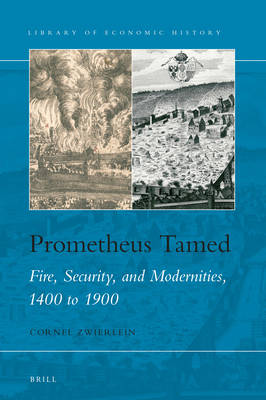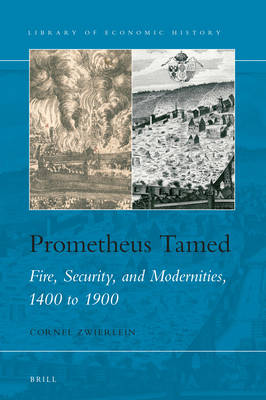
- Afhalen na 1 uur in een winkel met voorraad
- Gratis thuislevering in België vanaf € 30
- Ruim aanbod met 7 miljoen producten
- Afhalen na 1 uur in een winkel met voorraad
- Gratis thuislevering in België vanaf € 30
- Ruim aanbod met 7 miljoen producten
Zoeken
€ 256,95
+ 513 punten
Omschrijving
Over 8,200 large city fires broke out between 1000 and 1939 CE in Central Europe. Prometheus Tamed inquires into the long-term history of that fire ecology, its local and regional frequencies, its relationship to climate history. It asks for the visual and narrative representation of that threat in every-day life. Institutional forms of fire insurance emerged in the form of private joint stock companies (the British model, starting in 1681) or in the form of cameralist fire insurances (the German model, starting in 1676). They contributed to shape and change society, transforming old communities of charitable solidarity into risk communities, finally supplemented by networks of cosmopolite aid. After 1830, insurance agencies expanded tremendously quickly all over the globe: Cultural clashes of Western and native perceptions of fire risk and of what is insurance can be studied as part of a critical archaeology of world risk society and the plurality of modernities.
Specificaties
Betrokkenen
- Auteur(s):
- Uitgeverij:
Inhoud
- Aantal bladzijden:
- 564
- Taal:
- Engels
- Reeks:
- Reeksnummer:
- nr. 13
Eigenschappen
- Productcode (EAN):
- 9789004424128
- Verschijningsdatum:
- 7/01/2021
- Uitvoering:
- Hardcover
- Formaat:
- Genaaid
- Afmetingen:
- 155 mm x 234 mm
- Gewicht:
- 952 g

Alleen bij Standaard Boekhandel
+ 513 punten op je klantenkaart van Standaard Boekhandel
Beoordelingen
We publiceren alleen reviews die voldoen aan de voorwaarden voor reviews. Bekijk onze voorwaarden voor reviews.








